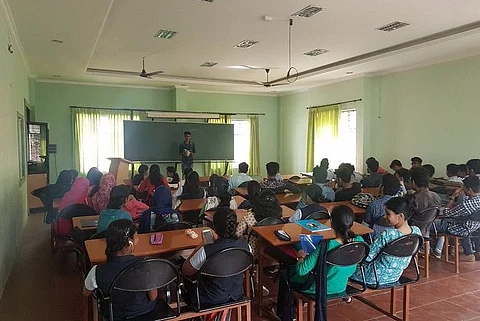

Should there be reservations for the poor among forward castes? The debate is as old as time, and has been kicked up once again in Tamil Nadu, after a Madras High Court judge asked the state government to “explore the possibility.”
Justice Kirubakaran, known for controversial statements like calling for the castration of child rapists, said, "The poor, in the so-called forward communities, have been neglected, so far and no one could speak about them fearing protest voices in the name of social justice.”
He was hearing a petition filed by 14 students from forward castes against allotment of MBBS seats in the open category to reserved category students on merit basis. The students called the allotment "illegal, arbitrary and violative."
"Of 822 (31%) seats available in open competition, not only forward community students but also students from other reserved categories are allotted seats on merit. In the process, only 194 seats reached students belonging to forward communities which are equivalent to 7.31%," the judge said.
Anti-caste activists and supporters of affirmative action say the judge’s statement is blind to the reality of caste, and the intent of reservation in the Constitution.
‘Reservation for poor is an anathema to social justice’
VCK leader Ravikumar says that the asking such a question is surprising, especially when the Supreme Court has already said that such a reservation is not possible.
“This has been decided on by the Supreme Court in the Indira Sawhney case. It has already been decided that affirmative action cannot be taken on the basis of economic criteria. When political parties say something like this, we can understand their political agenda. But it is surprising when a judge says it,” Ravikumar says.
Adding that the demand for such a reservation is not new, Ravikumar reminds that political parties too have made poll promises along these lines.
“Why is the government being asked to explore this when it has been decided by the Supreme Court?” he asks.
Former Karnataka Advocate General, Ravivarma Kumar, says an economic yardstick cannot be applied to reservation.
"The very question asked by the court, without meaning any disrespect to the court, is an affront to the Constitution,” he says. “The Constitution does not permit any reservation for forward castes. It mandates reservation only for backward classes.”
“The term ‘backward classes’ is a very well understood term. It only means socially backward classes, which means backward castes, scheduled castes and scheduled tribes. It cannot mean forward castes, either in the garb of poverty or for other reasons,” Ravivarma says.
DMK spokesperson Saravanan echoes the former AG, saying, “Our party has always opposed this creamy layer concept. Backwardness is not limited to economic status. Reservation for the poor is an anathema to social justice.”
“Backwardness is defined by social status and how they are perceived in a social set-up and that should be the criteria," Saravanan says.
‘Reservation is for undoing historical disadvantages’
Saravanan further adds that unlike economic status, caste is immobile. "Caste is determined at birth unlike economic status. Anyone can become rich or poor."
“Why is reservation provided? It is to undo a historical disadvantage inflicted on certain castes in India who were deprived education because of their caste, who were deprived professional or occupational freedom because of their caste and who were inflicted with the greatest injury of being kept bonded. Like washermen, cobblers, potters – they were all condemned to a particular traditional occupation by reason of their caste," Ravivarma says.
Explaining further, he adds, “Even if a Brahmin goes and lives in the Himalayas, he won't become a tribal. He can't be considered a scheduled tribe. He does not cease to be forward by going there.”
“All the sadhus are forward caste people. And if you apply the economic yardstick, all of them are backward economically. Constitution does not contemplate providing any protection to such people,” he says.
‘Reservation must be restricted’
However, the lawyer for the petitioners, Nalini Chidambaram, says it’s not only necessary to provide reservation to the poor among forward castes, reservation should also be restricted to “only once in a family.”
“My view is reservation is necessary but it should be restricted to only once in a family. Thereafter, their children should not get the benefits of reservation, it should go to other families who have not enjoyed the reservation,” she says.
Nalini is of the view that taking advantage of reservation by the same group of people means its benefits don't "percolate to the needy even among the backward castes."
She, however, acknowledges that the Constitution does not allow for reservation on economic basis at this point. "Unless there is a constitutional amendment, economic criteria cannot be the basis for reservation. Even though justice demands, it is not possible. Forward caste people won't come under socially and educationally backward," she says.